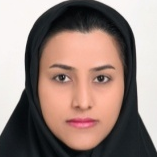
Maryam Rahmani
Work place: Institute of Advance Science and Technology, Intelligent control and Robotics Lab. IRAN
E-mail:
Website:
Research Interests: Artificial Intelligence, Robotics, Process Control System
Biography
Maryam Rahmani is currently working as a co researcher in Control and Robotic Lab at the institute of advance science and technology, IRAN SSP research and development Center. Her current research interests are in the area of nonlinear control, artificial control system and robotics, and spherical motor.
Author Articles
Design Intelligent System Compensator to Computed Torque Control of Spherical Motor
By Maryam Rahmani Farzin Piltan Farzin Matin Hamid Cheraghi Nasim Sobhani
DOI: https://doi.org/10.5815/ijisa.2014.08.10, Pub. Date: 8 Jul. 2014
Spherical three Degree-of- Freedom (DOF) is controlled by model-base fuzzy computed torque controller. The spherical motor has three revolute joints allowing the corresponding parts to move horizontally and vertically. When developing a controller using conventional control methodology (e.g., feedback linearization methodology), a design scheme has to be produced, usually based on a system’s dynamic model. The work outline in this research utilizes soft computing applied to new conventional controller to address these methodology issues. Computed torque controller (CTC) is influential nonlinear controllers to certain systems which this method is based on compute the required arm torque using nonlinear feedback control law. When all dynamic and physical parameters are known, CTC works superbly; practically a large amount of systems have uncertainties and fuzzy feedback Inference Engine (FIS) is used to reduce this kind of limitation. Fuzzy logic provides functional capability without the use of a system dynamic model and has the characteristics suitable for capturing the approximate, varying values found in a MATLAB based area. Based on this research model- base fuzzy computed torque controller applied to spherical motor is presented to have a stable and robust nonlinear controller and have a good result compared with conventional and pure fuzzy logic controllers.
[...] Read more.Design Intelligent PID like Fuzzy Sliding Mode Controller for Spherical Motor
By Farzin Matin Farzin Piltan Hamid Cheraghi Nasim Sobhani Maryam Rahmani
DOI: https://doi.org/10.5815/ijieeb.2014.02.07, Pub. Date: 8 Apr. 2014
The minimum rule base Proportional Integral Derivative (PID) Fuzzy Sliding Mode Controller (SMC) with application to spherical motor is presented in this research. The popularity of PID Fuzzy Sliding Mode Controller can be attributed to their robust performance in a wide range of operating conditions and partly to their functional simplicity. The process of setting of PID Fuzzy Sliding Mode Controller can be determined as an optimization task. Over the years, use of intelligent strategies for tuning of these controllers has been growing especially in nonlinear and uncertain systems. Proportional Integral Derivative methodology has three inputs and if any input is described with seven linguistic values, and any rule has three conditions, we will need 343 rules. It is too much work to write 343 rules and have lots of problem to design embedded control system e.g., Field Programmable Gate Array (FPGA). In this research the PID-like fuzzy controller can be constructed as a parallel structure of a PD-like fuzzy controller and a conventional PI controller to have the minimum rule base and good trajectory follow disturbance to control of spherical motor. However Sliding Mode Controller is work based on cancelling decoupling and nonlinear terms of dynamic parameters for each direction of three degree of freedom spherical motor, this controller is work based on motor dynamic model and this technique is highly sensitive to the knowledge of all parameters of nonlinear spherical motor’s dynamic equation which caused to challenge in uncertain system. This research is used to reduce or eliminate the Sliding Mode Controller problem based on minimum rule base fuzzy logic theory to control of three degrees of freedom spherical motor system and testing of the quality of process control in the simulation environment of MATLAB/SIMULINK Simulator.
[...] Read more.Other Articles
Subscribe to receive issue release notifications and newsletters from MECS Press journals